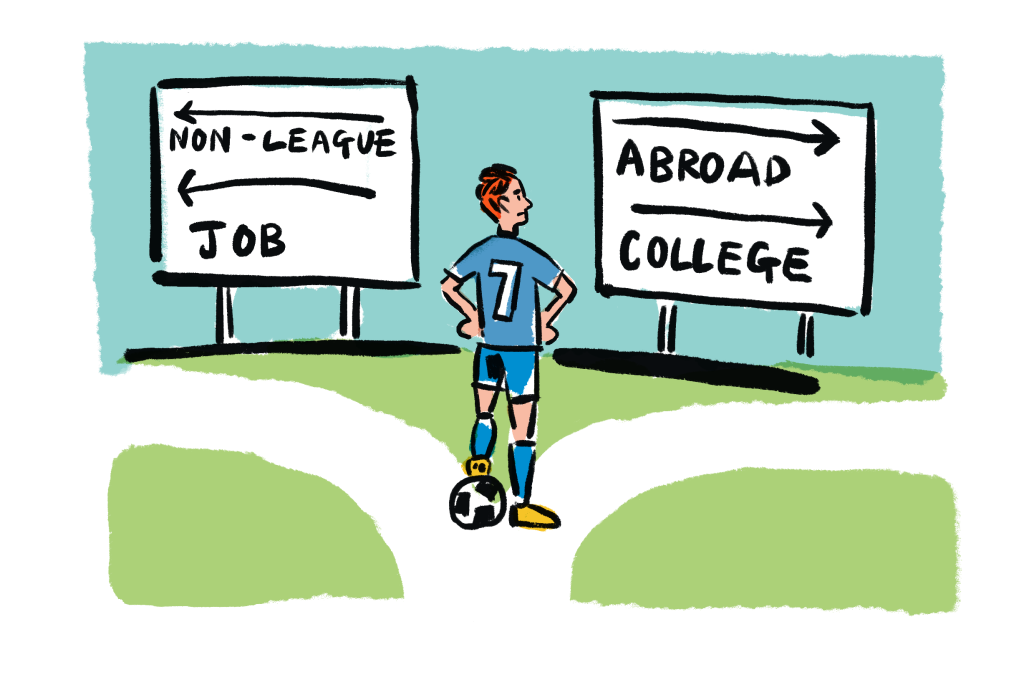Related Articles
Supporting parents through the scholarship decision – Workshop Handout
The journey through a football academy is challenging, and for most families, there will come a point when their child faces a significant decision, whether…
Supporting Scholars & Young Professionals: A Guide for Parents & Guardians
Supporting a child on a scholarship or as a young professional footballer means focusing on their wellbeing, relationships, and long‑term development, not just short‑term success.…
Being a No1 Fan in the Girls’ Game
Parents of girls in the academy system are navigating a mix of opportunity, pressure and uncertainty. This handout is for you to help you feel…
Thriving in your Academy
We understand that navigating the academy journey can be both exciting and challenging. This resource is designed to help you support your child effectively throughout…
Being a No1 Fan – Workshop handout
We understand that navigating the academy journey can be both exciting and challenging. This resource is designed to help you support your child effectively throughout…




